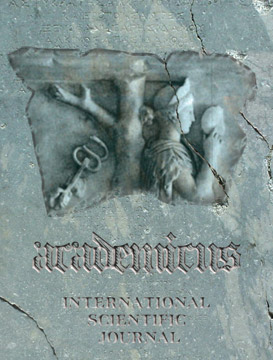Title:
Author(s):
Abstract:
Logical empiricism gave rise to a powerful paradigm and it took some decades to overthrow it, even though it should be judged respectfully since, after all, philosophy of science and logic as we know them stemmed from that ground. The basic assumptions on which the paradigm of the “received view” rested are essentially the following. In the first place, verificationism seemed almost a truth of faith. Secondly, logical empiricists never offered good arguments in support of their thesis that assertive discourse must be preferred to more pragmatic forms of language. Thirdly, they too easily assumed that something like “objective truth” really exists. Last but certainly not least, the logical empiricists did not fully recognize the historical dimension of the scientific enterprise, which subsequently turned to be something different from the “universal science” they were talking about. In the paper it is argued that scientific realism (and the nature of scientific knowledge at large) is a theme where the originality of pragmatist positions clearly emerge. Nicholas Rescher, for example, claims - against any form of instrumentalism and many postmodern authors as well - that natural science can indeed validate a plausible commitment to the actual existence of its theoretical entities. Scientific conceptions aim at what really exists in the world, but only hit it imperfectly and “well off the mark”. What we can get is, at most, a rough consonance between our scientific ideas and reality itself. This means that the scientific knowledge at our disposal in any particular moment of the history of mankind must be held to be “putative”, while its relations to the truth (i.e. how things really stand in the world) should be conceived in terms of tentative and provisional estimation. Even the optimistic visions that see science as growingly approaching the “real” truth have, at this point, to be rejected on pragmatic grounds.
Keywords:
Pragmatism, Science, Scientific Realism, Ideal Science, Final Theory, Relativism
Full Text PDF:
References:
View complete reference list, click
here
Digital Object Identifier DOI:
The article's content ©Academicus™ Pragmatism and Science
by
Prof.Dr. Michele Marsonet
is licensed under a Creative Commons
Attribution-NonCommercial 4.0 International License.
Presented:
January 2013
Included for Publishing:
June 2013
Published:
July 2013,
Volume 4,
Issue 8
Academicus International Scientific Journal is an Open Access Journal. This means that all content is freely available without charge to the user or his/her institution. Users are allowed to read, download, print, search, or link to the full texts of the articles in this journal without asking prior permission from the publisher or the author. This is in accordance with the BOAI definition of open access. Users are obliged to cite the source (Academicus International Scientific Journal) and the author, according to the international citation standards.
To learn more about the OA Policy followed by Academicus ISJ, read Journal Regulations
Academicus
International Scientific Journal
pISSN 2079-3715
eISSN 2309-1088
Address:
Sheshi i Flamurit, Rruga Muze
Al-9401 Vlorë, Albania
Tel: +355 68 60 60 555
info@academicus.edu.al
https://academicus.edu.al



 Scholar
Scholar
 Crossref
Crossref
